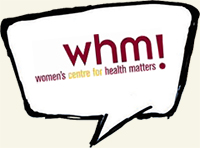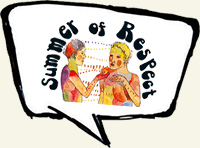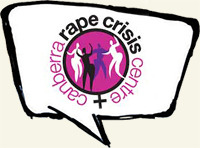What To Say is designed to give individuals the information they need to identify sexual violence and empower them to call it out.
What To Say will give you some safe ways to intervene when you experience or witness sexual violence. It also provides advice on how to support a friend who tells you they’ve experienced sexual violence.
It’s definitely not easy speaking up, but being a supportive bystander is the right thing to do.
GUIDE TO REPORTING ON SEXUAL AND DOMESTIC VIOLENCE AGAINST WOMEN AND CHILDREN
Violence against women and children is a large problem both nationally and in the ACT, and it is everyone’s concern. It occurs in all parts of society, regardless of age, culture, socio-economic status, education, occupation, or religion.
The media plays a major role in shaping public perceptions, so journalists are uniquely positioned to influence community awareness and understanding about violence against women and children. If not accurately and appropriately portrayed, media reporting can help to perpetuate stereotypes and beliefs and if done wrongly, may cause additional harm to victims.
So ACT journalists have a key part to play in communicating the right messages and perceptions about violence against women and children in the ACT so that the public knows and understands the local facts about this issue.
Background
Local ACT journalists told the Women’s Centre for Health Matters that they needed guidance on how to report about domestic and sexual violence against women and children because they can be difficult issues for them to investigate and report on, and there was no easy access to local information to inform their reporting. With assistance from an ACT Women’s Grant, the Guides for ACT Media—Reporting on Violence against Women and Children in the ACT were developed in consultation with local journalists and media/journalism students as a resource for those in the ACT media who have any involvement with the reporting of domestic violence, sexual violence, child sexual assault and Indigenous family violence.
In the development of these resources, Women’s Centre for Health Matters partnered with local community sector experts the Canberra Rape Crisis Centre, Beryl Women Inc. and the Domestic Violence Crisis Service.
The Guides found below provide practical information and advice to support ACT journalists/media to gain an understanding about the nature of these issues. Each resource provides local facts and statistics, suggestions about issues to consider when reporting, local ACT information, and local contacts. We hope that these will be a useful reference and will assist journalists and other local media to gain a better understanding of the various forms of violence against women and children, enabling them to report on the issue with greater accuracy. Through better awareness and understanding, local media will then be better able to raise community awareness and report sensitive issues.




